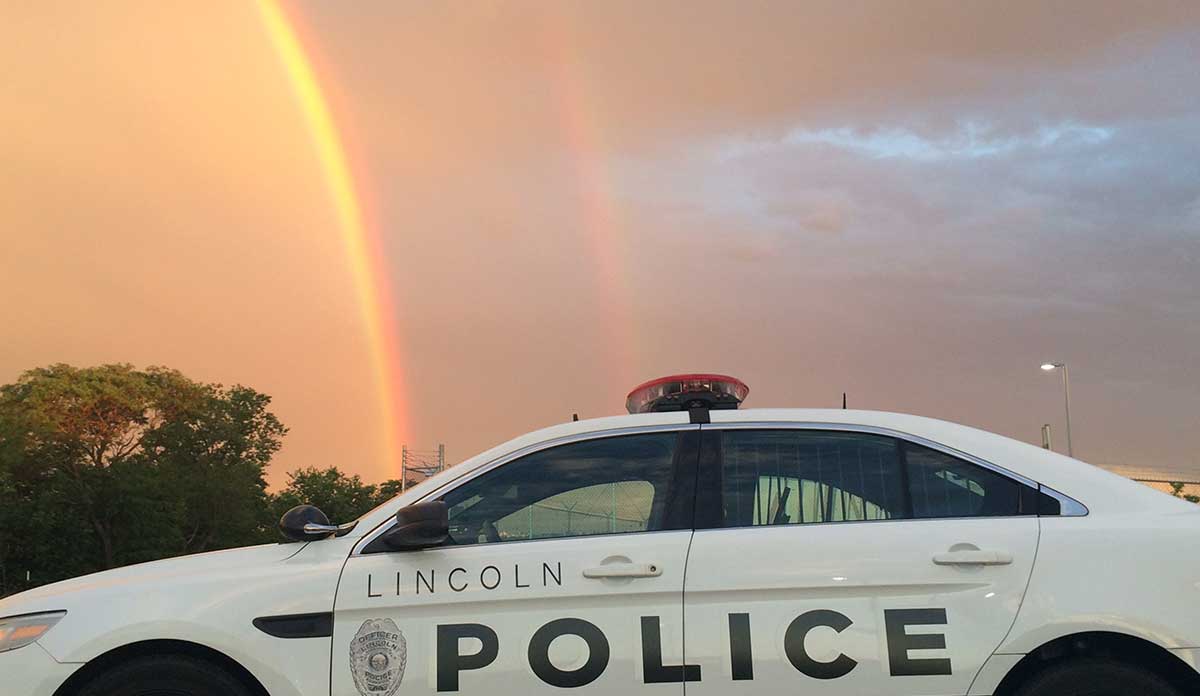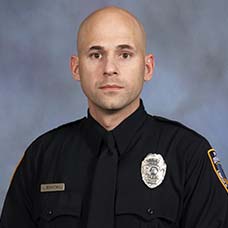In both public health and law enforcement, assisting people with mental illness remains a challenging priority. Police officers may not have adequate training, cities may not have sufficient mental health services and outreach, and mental health professionals may not collaborate with law enforcement professionals to assist people experiencing a mental health crisis.
For the last two decades, the Lincoln Police Department (LPD) has partnered with the Mental Health Association of Nebraska to improve police training, expand community mental health services, and enhance collaboration between police officers and mental health workers. The culmination of this partnership is the REAL program, which stands for Respond, Empower, Advocate, and Listen. The REAL program is different from other mental health assistance programs. It is free, voluntary, and non-clinical assistance is provided entirely by individuals who have lived experience with mental illness.
Within 24-48 hours, a peer specialist will contact the individual and offer assistance.
It works like this: After an LPD officer finishes assisting a person in crisis, the officer may send an email to the REAL program about that individual’s background and the incident. Within 24-48 hours, a peer specialist will contact the individual and offer assistance. Peer specialists do not diagnose, recommend medications or doctors, or attempt to institutionalize the people they are assisting. Instead, they help people with mental illness identify needs and challenges that may have precipitated their crisis.
These issues may or may not be directly mental health-related. For instance, a person may experience a mental health crisis because of anxiety over a lost job or inability to pay bills. Peer specialists listen and help them develop their own solutions and strategies. Peer specialists may help an individual find mental health professionals, locate stable housing, arrange contact with a substance abuse counselor, and/or secure long-term employment. As the name of the program indicates, peer specialists respond to people after a crisis, empower them by helping them develop long-term mental health plans, advocate for them when attempting to secure resources, and listen to their needs, wants, and frustrations rather than coerce them into decisions.
The Mental Health Association of Nebraska peer specialists and LPD investigators often meet and collaborate to develop solutions for people who use police, mental health, and hospital services at very high rates.
The Mental Health Association of Nebraska peer specialists and LPD investigators often meet and collaborate to develop solutions for people who use police, mental health, and hospital services at very high rates. The goal is to identify why someone is using services so frequently, develop a plan, and then present that plan in an encouraging, non-threatening manner.
In 2017, LPD conducted a three year evaluation of the impact of the REAL program, examining three outcomes: Did the REAL program reduce 1) arrests, 2) mental health calls for service, and 3) the odds of being taken into protective custody for individuals referred to the program (compared to those not referred)? LPD analyzed these outcomes twelve, twenty-four, and thirty-six months after the mental health crisis.
First, the disappointing news: LPD found no difference in arrest rates between referred and non-referred people with mental illness. Notably, however, LPD’s study found that those referred generated fewer mental health calls for service and were less likely to be taken into emergency protective custody twenty-four and thirty-six months after a crisis. In addition, the REAL program was especially effective for people with lengthy histories of contact with police officers during a mental health crisis. Further analyses suggested that it took between twelve and twenty-four months to develop stable, long-term mental health plans for individuals in the REAL program.
There are three key takeaways from LPD’s work with the REAL program. First, it is critical that law enforcement agencies collaborate with mental health workers and advocates to assist people with mental illness. Second, it may take over a year before individuals reap the benefits of a post-crisis assistance program. Third, jurisdictions truly committed to aiding their most vulnerable citizens must consistently fund collaborative mental health response programs. The other option—already in full force—is to simply continue spending money cycling and recycling people living with mental illness through jails, hospitals, homeless shelters, and other costly, ineffective alternatives.
Feature image courtesy of the author and the Lincoln Police Department













